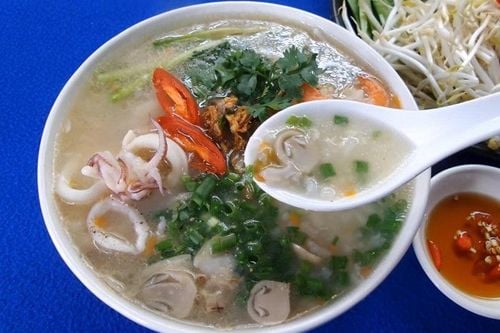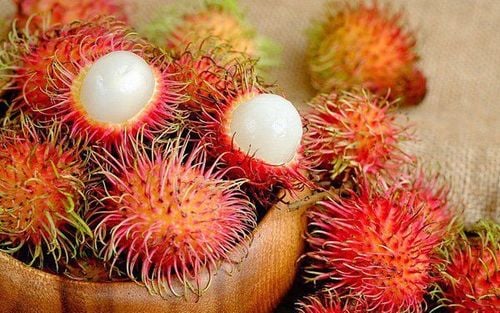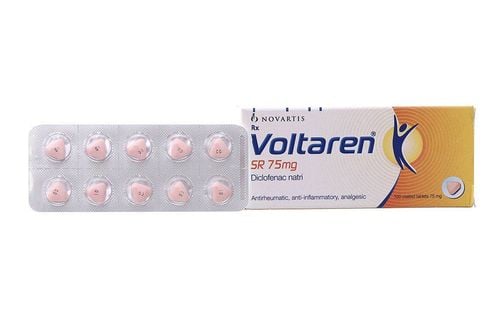Squid is a popular seafood worldwide. One of the most common ways to prepare squid is to chop it, bread it, and fry it. This species of squid is commonly referred to as calamari, although the term 'squid' technically encompasses any type of squid used as food. Many different species of squid are caught and eaten. So, what are the benefits of eating squid? Let's explore the article below to clarify this issue.
1. What are the Benefits of Eating Squid?
Squid, also known as cuttlefish, belongs to the family Sepiidae, with the scientific name Sepia spp. Squid is an invertebrate animal with a body divided into two parts: the head and the body. The head has 8-10 arms with rows of suckers, and the tentacles are longer than the body. The mouth is located under the belly. The soft body accounts for about 70% of the weight, is oval-shaped, and has many wavy lines on the back. The cuttlebone is a porous limestone shell covered with a thin layer of horn. Cuttlefish are abundant in tropical seas and live in deep, high-salinity waters, forming schools at the bottom. Cuttlefish eat fish, worms, and smaller animals. The breeding season is from April to September. The main part used for medicinal purposes is the cuttlebone, known as "ô tặc cốt" or "hải phiêu tiêu." The harvesting season is from June to August. Squid is brought back, the meat is removed, and the cuttlebone is kept, washed to remove salt, and dried. When used, the hard outer shell is scraped off, then cut into small pieces or ground into powder and sieved.
The cuttlebone contains calcium salts in the form of carbonate, phosphate, sulfate, organic substances, and colloids. The cuttlebone possesses a salty, astringent flavor, a warm property, and is non-toxic. It is indicated for hemostasis and wound healing.
Squid meat is also used medicinally but is not as common. Squid meat contains protein, lipids, calcium, phosphorus, iron, vitamin B1 (thiamine), vitamin B2 (riboflavin), vitamin B6 (pyridoxine), and vitamin PP. Squid meat has a sweet and slightly sour taste, and is considered to have properties that tonify the spleen and stomach, boost energy, and regulate the menstrual cycle.
2. 15 amazing health benefits from 2. 15 Amazing Health Benefits of Eating Squid
2.1. Low Carbohydrate Content
Squid is one of the few shellfish that actually contains a low amount of carbohydrates. In fact, in 30 grams of boneless squid, you will only get 0.87 grams of carbohydrates. This is great for your diet because carbohydrates can be converted into glucose by the body, so eating too many carbs can cause rapid weight gain. High-carb foods can make you unbalanced. Therefore, for those who want to diet but are afraid that the menu will only include vegetables, don't worry, they can still add squid to their diet because it has little or even no carbs.
2.2. Low Cholesterol Content
Unlike any other seafood that can increase cholesterol levels in our blood, squid can actually lower cholesterol levels when eaten. Uncooked squid has surprisingly low fat content, and it is important to note that high-fat content can increase cholesterol levels. Science has proven that squid is one of the seafood with the lowest calorie content that we can find.

2.3. Anti-Tumor and Anti-Cancer Properties
Squid and its meat can help us prevent and fight cancer. Both parts of the squid contain a lot of antioxidants. Antioxidants protect cells from harmful and unstable molecules called free radicals.
Free radicals are unavoidable as they can be encountered in our daily lives, in air pollutants, cigarette smoke, and industrial chemicals. Antioxidants in squid can help the body neutralize free radicals by increasing the efficiency of killer cells, and for cancer patients, it can help them fight the disease by increasing the number of white blood cells during chemotherapy.
2.4. Enhances Work Efficiency
Squid is a source of dopamine, which can contribute to mental health. A part of the brain that determines focus, a happy mood, and a good memory is supported by a chemical called dopamine. Eating squid will actually increase the supply of dopamine in the brain, helping you stay alert and have more energy to complete your work.
2.5. Stabilizes Blood Sugar Levels
For people with diabetes, the biggest challenge they face in life is choosing foods that do not contain or contain very little sugar in their diet. Fortunately, squid has no sugar, and it can also help us reduce the risk of diabetes. The substance in squid that determines this benefit is vitamin B3. According to statistics, there are about 2.17 milligrams of vitamin B3 in every 100 grams of squid, equivalent to 11% of the recommended daily intake of vitamin B3 for each person.
2.6. Reduces Migraine Risk
Migraines are becoming more common, especially in modern life when everyone is busy with their work. It is difficult to predict and prevent migraines, but eating squid can actually help.
The duration and frequency of migraines can be reduced thanks to vitamin B2. Squid is rich in vitamin B2; by eating it, you can prevent migraines and energize yourself for a long working day.
2.7. Helps Prevent Anemia
Blood is one of the main and most important components of our body, and sometimes we need something to maintain its flow. By eating squid, we can maintain blood flow because squid contains copper. In fact, squid contains up to 90% of the copper that blood needs to function well.
Since copper is a trace mineral, it can promote the body to increase the production of red blood cells, contributing to the health of nerve cells and the overall immune system of the body. Therefore, it reduces the risk of anemia, which doctors classify as a deadly disease.
2.8. Maintains Bone and Dental Health
Squid contains a rich amount of phosphorus. Phosphorus itself does not directly participate in protecting bone and dental health, but it promotes the body's absorption of calcium, an important mineral in building strong teeth and bones.

2.9. Rich in Protein
Like any other seafood, squid is an excellent source of protein. In fact, squid can contribute to 64% of the recommended daily protein intake for the body.
Protein is an important part, playing the role of "building" the body. Our nails and hair are also made of protein, and it can also promote the production of hormones, enzymes, and other chemicals that are very important for the body. In fact, we need a lot of protein to grow and maintain our own shape.
2.10. Boosts Immune System Health
Squid helps build the body's immune system, helping us maintain our health for a longer time. The agent responsible for this benefit of squid is zinc.
If we lack zinc, we will be more susceptible to attacks by pathogens from both inside and outside the body.
2.11. Reduces the Risk of Stroke and Heart Disease
The heart is one of the most important parts of the body. Therefore, maintaining a healthy heart is essential for a healthy body.
Squid is known to be a seafood rich in potassium. Potassium is a mineral that helps balance heart rhythm. Squid also comes with another heart-healthy agent, vitamin E. Vitamin E helps protect the heart because it enhances the protection of cells and makes them less susceptible to damage.
2.12. Reduces Inflammation
Scientists have proven that almost everything we do increases or decreases the number of inflammatory sites in the body. But chronic inflammation is different. It can inflame the arteries, causing heart attacks and strokes, which can ultimately be life-threatening.
Squid helps us prevent this condition because it is one of the anti-inflammatory foods, preventing the body from creating too many inflammatory sites.
2.13. Natural Antibacterial Source
Squid is an example of food used as an alternative medicine. Squid itself can become a powerful antibacterial agent, especially its ink. There is an experiment that proves this theory when squid clearly has properties against bacteria such as E.coli and K. Pneumoniae.
2.14. Promotes Growth in Children
With many impressive benefits presented, it is no surprise that it helps in the growth stage of children. It has all the necessary components for a child to grow well.

Squid contains minimal cholesterol, but enough to contribute to the growth of children by helping brain development. Squid also contains an excellent source of vitamin B2 to convert carbs, fats, and proteins into energy. It is also rich in selenium, an agent with antioxidant properties, helping children's cells fight damage, and ultimately improving their immune system. These factors help in the growth of children.
2.15. Maintains Sodium Levels
We need a daily intake of sodium to help maintain blood pressure and ensure that body fluids are balanced. When there is too much sodium, you can have high blood pressure and cause other harmful effects. Squid provides a moderate amount of sodium, 744 mg/100g of cuttlefish. That way, you can still get the benefits of sodium without affecting your overall health.
Squid is a health-beneficial food that is often overlooked by some people. Squid is a strangely shaped mollusk that has become a popular dish in kitchens for many years. It has tentacles, chewy meat, and it squirts black ink when threatened. Many parts of the squid can also be processed into dishes. Its ink is used to color food, its oil is used to flavor, and its meat is transformed into various dishes. Squid is not only delicious but also very good for our health due to the many practical benefits it can bring to us.
To arrange an appointment, please call … or make your reservation directly HERE. You may also download the MyVinmec app to schedule appointments faster and manage your reservations more conveniently.













